
Data to Deals
The Strathmore Energy Research Centre, CCG’s partner in Kenya, organised the most recent Annual Workshop, which brought together experts from academia, industry, government, and international partners to explore the theme of ‘Data to Deals: From Insights, Impact, and Investment Opportunities.’ We were also delighted to be joined by FCDO’s Alfie Alsop.
The Data-to-Deal (D2D) framework, a proven methodology originating in Costa Rica and championed by CCG, enabled participants to explore how integrating policy, finance, and research can unlock climate investment potential. Analysis of country specific data informs models and scenarios for future energy options, enabling governments to make policy and infrastructure choices that are more likely to attract climate finance. In Costa Rica a data-driven Long-Term Strategy secured $2.4 billion in climate finance. $6.5 billion was provided in the Dominican Republic, $2.2 billion in Chile, and $832 million in Uruguay.
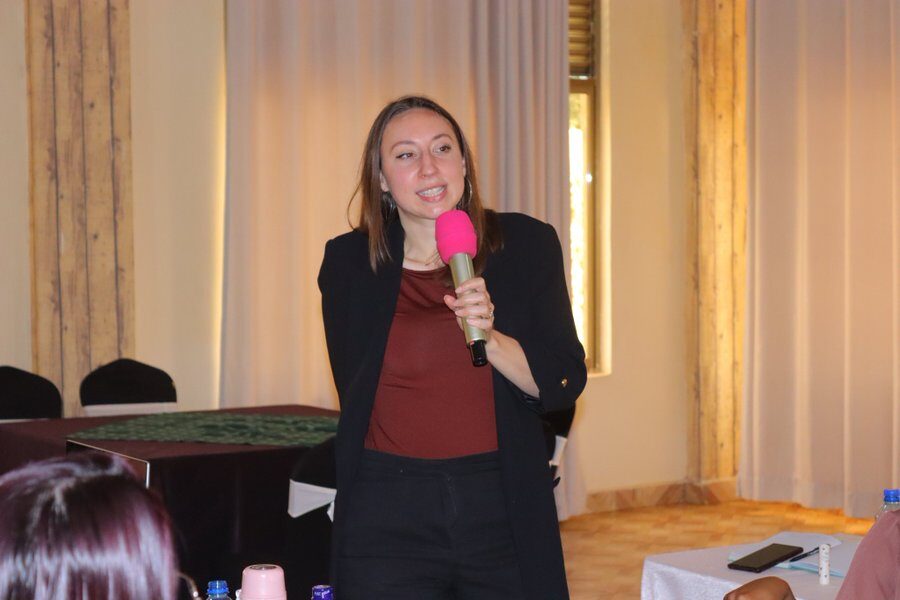
Dr Elizabeth Tennyson, Senior Research Associate at the University of Cambridge, emphasised the vital role of partnerships in shaping a climate-compatible future, praising Strathmore’s leadership in fostering multi-year collaborations and highlighting Kenya’s pioneering role as CCG’s first African partner country.
“CCG now has eight partner countries, four in Africa and four in Asia, as we have recently added Malawi and Nepal as CCG partner countries. Kenya […] has been an excellent example of what success looks like throughout the programme,” she said.
Mr Martin Mutembei, Kenya CCG Network Lead Coordinator, emphasized an approach, where academia, government, and industry join forces. “By leveraging insights, we can bridge gaps, drive innovation, and accelerate sustainable development,” he stated.
Dr Chinagorom Ajike, CCG Country Partnerships Coordinator, led the Kenya CCG Network Review, reflecting on 2024 milestones and emphasizing the need for inclusive innovation, embedded research, and local capacity building.
Success stories, such as Makueni County’s groundbreaking energy initiatives, were powerful testaments to how data-driven insights translate into impactful, sustainable investments. By harnessing real-time data, the county has successfully implemented renewable energy solutions, setting a benchmark for other regions.
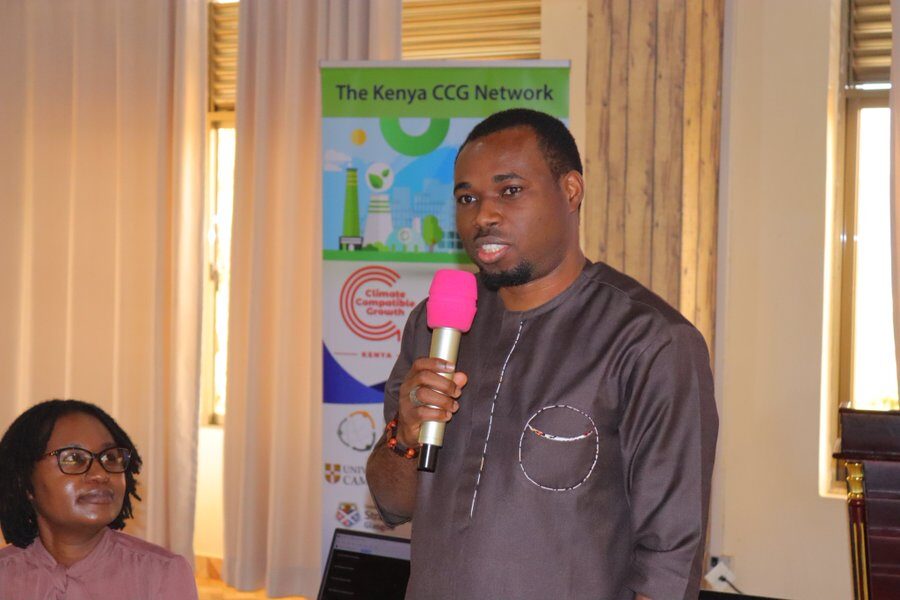
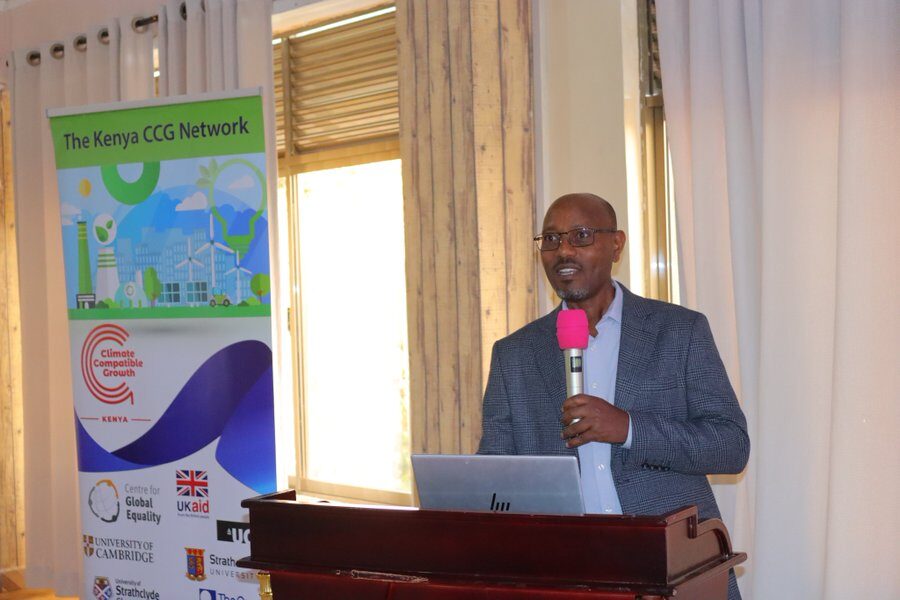
Industry leaders from BasiGo Kenya and Practical Action demonstrated how businesses are leveraging data analytics to scale green investments, revolutionize sustainable transport, and drive Kenya’s transition to a low-carbon economy. Their innovations in e-mobility and clean energy adoption highlighted the crucial role of data in de-risking investments, informing policy, and accelerating climate-smart solutions.
Kenya’s Special Interest Groups (SIGs) convened to map investment opportunities and define critical data needs in areas such as Low-Carbon Transport, Clean Cooking, Climate Entrepreneurship, and Policy Pathways.
Eng. Boniface Kinyanjui, Deputy Director, Electricity, EPRA underscored the power of data in financial modelling and risk mitigation. “Data is not just numbers. It is the bridge to sustainable financing,” he remarked.
Day Two went deeper into the practical side of climate finance. Dr. Lara Allen, CEO of the Centre for Global Equality, delivered a compelling analysis of entrepreneurial ecosystems, cautioning that 80% of startups fail due to a lack of strategic support. She challenged academia to fill this gap and help innovators transition from promising ideas to viable enterprises.
Paul Mbole, Board Member, Kenya Climate Innovation Centre (KCIC) and P4G Partnerships Kenya National Platform Liaison, echoed this sentiment, emphasizing the need to support climate entrepreneurs in navigating the journey from innovation to commercial viability.
Dr Benard Alunda, (Taita Taveta University), Dr Alycia Leonard,(University of Oxford), Tonny Kukeera, (University of Manchester), and Faith Njaramba, (Strathmore University Business School) shared insights on Climate-Smart Solutions and Climate Adaptation Entrepreneurship, demonstrating how academia is turning climate challenges into economic growth opportunities.
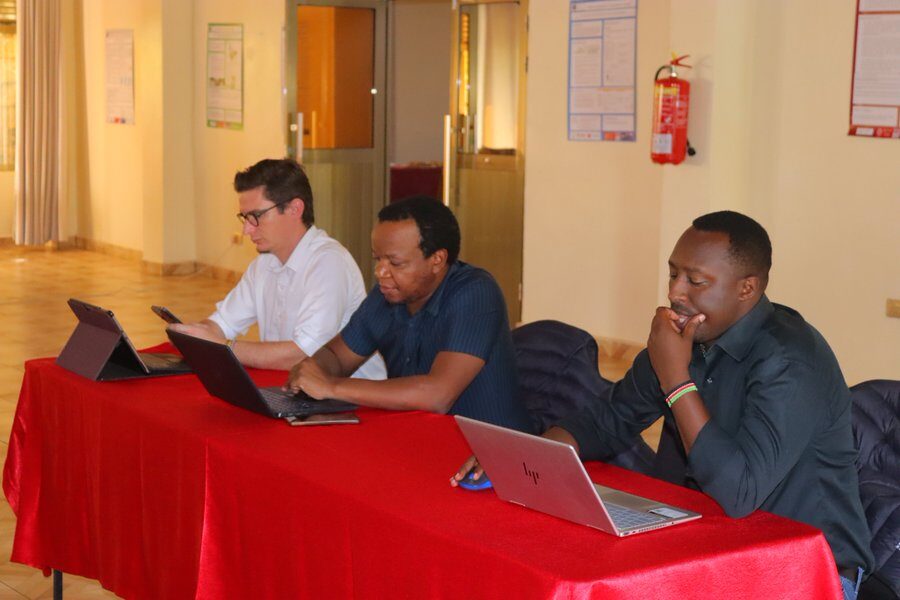
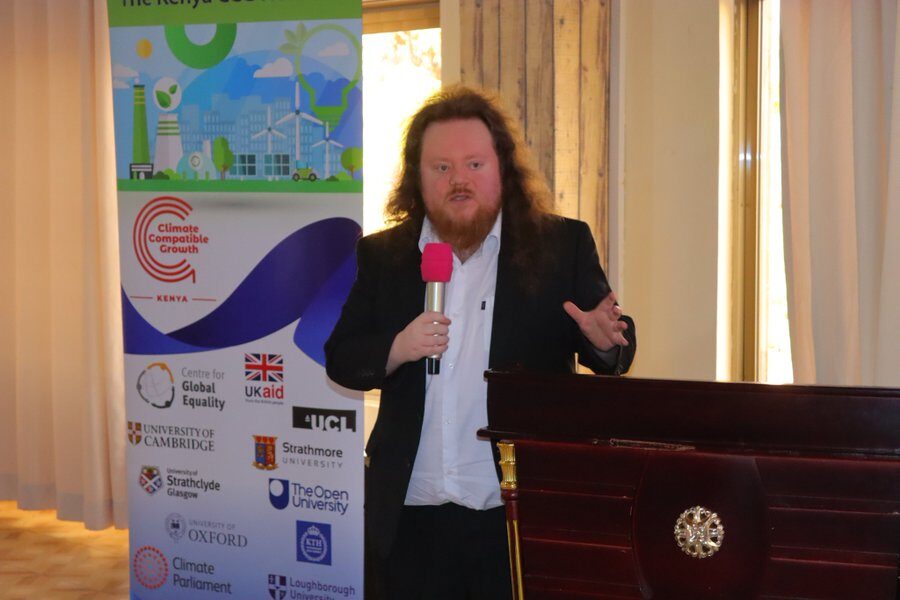
In an era where climate finance is crucial, Emmah Kosgei, a Carbon Offset Expert, explained the complexities of Carbon Asset Development, including how carbon finance mechanisms drive sustainable investments. David Nyawa from Africa Minigrid Developers Association showcased how data is transforming the mini-grid sector, enhancing efficiency, scalability, and clean energy access.
In his closing remarks, Dr. Churchill Saoke, the Director of Strathmore Energy Research Centre, said the challenge now lies in scaling these insights into tangible climate investments, a mission that will require continued collaboration between government, academia, and the private sector.
“As the Kenya CCG Network moves into its next phase, Strathmore University remains committed to fostering impactful research and partnerships that drive sustainable growth. The focus should now shift to one critical goal; turning data-backed policies into real investment opportunities,” said Dr. Saoke.
